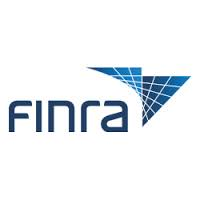 Many business owners are not familiar with FINRA or how it relates to buying or selling a business. FINRA (Financial Industry Regulatory Authority, Inc.) is an independent, not-for-profit organization authorized by Congress to protect America’s investors by making sure the securities industry operates fairly and honestly.
Many business owners are not familiar with FINRA or how it relates to buying or selling a business. FINRA (Financial Industry Regulatory Authority, Inc.) is an independent, not-for-profit organization authorized by Congress to protect America’s investors by making sure the securities industry operates fairly and honestly.
FINRA’s oversight of interstate securities activities includes not only publicly traded securities but also private securities of any size company including the one you may be buying or selling. If you are buying or selling a business, FINRA is providing oversight of those FINRA licensed broker-dealers and representatives who may be working on your deal.
FINRA oversight begins with the licensing process. Every applicant must be sponsored by a FINRA licensed broker-dealer and complete a detailed application. This application is submitted to FINRA along with the applicant’s finger prints which are sent to the FBI as part of a criminal background check. After an application is approved there is an examination to establish core level of expertise. M&A activities require passing the Series 79 examination to secure an “Investment Banking Representative” license. Certain types of private placements and other types of securities require the Series 7 “General Securities Representative” examination. Representatives will also take a Series 63 “Uniform Securities Agent State Law” examination.
Once an individual is licensed his or her activities are monitored both by the sponsoring broker-dealer and by FINRA. FINRA regularly examines broker-dealers and their representatives for compliance with FINRA rules and may bring disciplinary actions and fines against registered brokers and firms for violations. It may refer particularly egregious cases to the SEC or other agencies for litigation and/or prosecution.
You may wish to check a firm and or broker you are considering. FINRA provides convenient public access to their “BrokerCheck” feature via their website www.finra.org. BrokerCheck includes current licensing status and history, employment history and, if any, reported regulatory, customer dispute, criminal and other matters. FINRA recommends that it be the first resource investors turn to when choosing whether to do business or continue to do business with a particular firm or individual.
Posted by Roy Graham.

